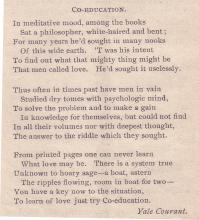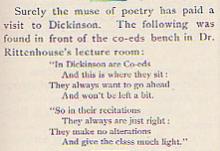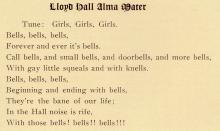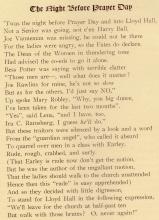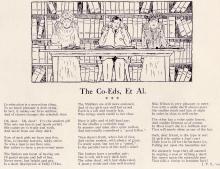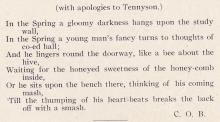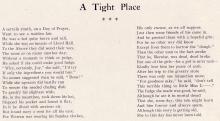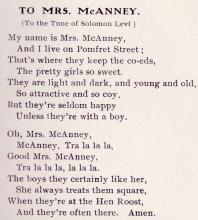Our Law Co-Ed
This five stanza poem by W.P.S. demonstrates his sadness when Miss Lillian Sara Marvel, the first female law student at the College, does not return his advances.
"Alas! the world has gone away / Since Lillian entered college, / For she has grown so learned, I / Oft tremble at her wonderous knowledge. / When'er I dare to woo her now / She frowns that I should so annoy her , / And then proclaims, with lofty brow, / Her mission is to be a lawyer."


